Social Media
Elon Musk reinstates Alex Jones on X after five-year ban

From LifeSiteNews
70% of participants in an X poll voted in favor of bringing the eccentric political commentator back to the platform.
Alex Jones has been reinstated on X, formerly Twitter.
On Sunday, December 10, Jones’ X account was reinstated after Elon Musk ran a poll in which 70% voted in favor of bringing the eccentric political commentator back to the platform.
Reinstate Alex Jones on this platform?
Vox Populi, Vox Dei.
— Elon Musk (@elonmusk) December 9, 2023
Musk’s decision came shortly after Tucker Carlson published an interview with Jones that garnered over 15 million views on X. In the conversation with Carlson, Jones warned about a globalist plan of “designed global collapse.” Musk has frequently watched and commented on Carlson’s show Tucker on X before.
I want to thank Tucker Carlson for the below interview. It enabled me to escape the phantom zone and let the world know what I really stand for! Tucker broke the Matrix!! https://t.co/Pee9JPuH2w
— Alex Jones (@RealAlexJones) December 11, 2023
On Monday, X also reinstated the account of Jones’ show InfoWars, as well as Jonathan Owen Shroyer, the host of the War Room show on InfoWars.
Jones was banned from Twitter in September 2018, shortly after being de-platformed in a coordinated effort by several other big tech platforms, including his YouTube channel with around 2.5 million subscribers, due to “hate speech.”
On Sunday, Mario Nawfal hosted a live discussion (“XTownHall”) on X that featured Jones, Musk, and many other prominent figures, such as influencer Andrew Tate, GOP presidential candidate Vivek Ramaswamy, and political commentator Jack Posobiec.
The discussion, which lasted over two hours and was viewed by more than eight million users, covered a wide range of issues, including online censorship, globalism, de-population, and the World Economic Forum (WEF).
Musk and Jones agreed that there is a globalist plan to de-populate the world and that it is crucial to counter this agenda by having more children.
When asked by Jones what his plan is to counter the globalists, Musk replied: “We should expand humanity…we should have more kids, the population should increase, and we should become a multi-planet species.”
During the discussion, Jones praised Musk for standing up for free speech by acquiring Twitter and reinstating banned accounts. “You are literally changing the entire paradigm…you definitely got the system scared,” Jones told the tech billionaire.
Later in the discussion, Posobiec asked Musk what he would do if intelligence agencies like the FBI or Department of Homeland Security (DHS) approached X with censorship requests as they did in the past before Musk acquired the platform.
Musk affirmed his commitment to free speech, saying he plans to allow legal content to remain on the platform. He furthermore stated that he would be willing to go to jail if he thought a government agency was breaking the law with their censorship requests.
EXCLUSIVE: @elonmusk just confirmed to Human Events' @JackPosobiec that he would be willing to go to jail rather than illegally censor users on X on behalf of the federal government. pic.twitter.com/VDZqks37nO
— Human Events (@HumanEvents) December 10, 2023
“We will be as transparent as possible…and frankly if I think that a government agency is breaking the law in their demands on the platform, I would be prepared to go to prison personally if I think they are the ones breaking the law.”
Addressing the globalist WEF meeting in Davos, Musk said that some video clips he had seen from the events were “concerning,” and referred to the WEF as an “unelected world government.”
“I don’t think we should have an unelected, quasi-governmental organization deciding our future,” he said.
“I’m not okay with some organization that I didn’t vote for controlling my destiny or that of other people.”
“I think an unelected world government is not a good idea,” the tech mogul concluded.
Censorship Industrial Complex
Elon Musk skewers Trudeau gov’t Online Harms bill as ‘insane’ for targeting speech retroactively
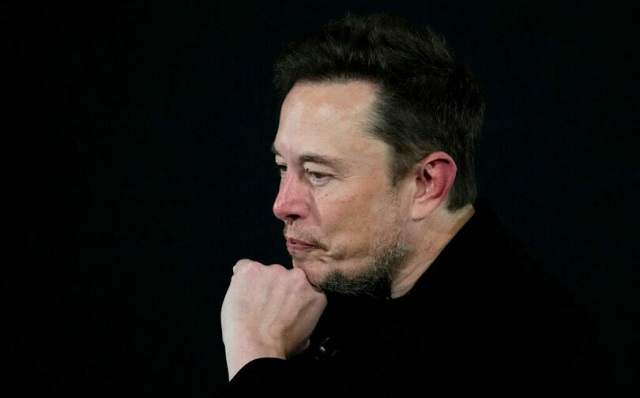
From LifeSiteNews
It literally spits in the face of all Western legal traditions, especially the one about only being punished if you infringed on a law that was valid at the time of committing a crime
Billionaire tech mogul Elon Musk remarked that it is “insane” that the Trudeau government’s proposed “Online Harms” bill would target internet speech retroactively if it becomes law.
“This sounds insane if accurate!” wrote Musk on Tuesday, in reply to an X (formerly Twitter) user named Camus who detailed that Prime Minister Justin Trudeau’s government’s Bill C-63, the Online Harms Act, could see Canadians fined or even jailed for things posted on the internet prior to the bill becoming law.
Camus noted how Bill C-63 could give police “the power to retroactively search the Internet for ‘hate speech’ violations and arrest offenders, even if the offence occurred before the law existed.”
A brief time later, X’s “CommunityNotes” program – a system in which users collectively “fact-check” information shared on the site –confirmed what Camus had written was accurate, quoting a section of the bill’s text.
“Part 3 of Bill C-63, which is still at first reading stage and is not yet law, adds to the Canadian Human Rights Act: ‘a person communicates or causes to be communicated hate speech so long as the hate speech remains public and the person can remove or block access to it,’” CommunityNotes wrote.
Camus observed about Bill C-63 that the “Trudeau regime has introduced an Orwellian new law.”
“This new bill is aimed at safeguarding the masses from so-called ‘hate speech,’” he wrote. “The real shocker in this bill is the alarming retroactive aspect. Essentially, whatever you’ve said in the past can now be weaponized against you by today’s draconian standards.”
Camus observed how historian Dr. Muriel Blaive has weighed in on “this draconian law,” labeling it outright “mad.”
“She points out how it literally spits in the face of all Western legal traditions, especially the one about only being punished if you infringed on a law that was valid at the time of committing a crime,” wrote Camus.
Bill C-63 was introduced by Liberal Minster Attorney General Arif Virani on February 26 and was immediately blasted by constitutional experts as troublesome.
The bill, if passed, will modify existing laws, amend the Criminal Code as well as the Canadian Human Rights Act, in what the Liberals claim will target certain cases of internet content removal, notably those involving child sexual abuse and pornography.
However, the bill also seeks to police “hate” speech online with broad definitions, severe penalties, and dubious tactics.
Trudeau’s new bill a ‘terrible attack’ on speech, Musk warns
On Tuesday, well-known Canadian psychologist Jordan Peterson replied to Musk by saying about Bill C-63, “It’s much much worse than you have been informed: plans to shackle Canadians electronically if accusers fear a ‘hate crime’ might (might) be committed.”
“It’s the most Orwellian piece of legislation ever promoted in the West.”
Musk replied to Peterson by saying Bill C-63 is “[a] terrible attack on the rights of Canadians to speak freely!”
Other notable X users, such as Canadian lawyer David Freiheit, who is known online as Viva Frei, confirmed Musk’s concern that Bill C-63 could go after X users from posts/tweets made long ago.
“It’s pretty close to accurate, Elon. If someone has the ability to delete a ‘hate speech’ tweet / post and does not, and someone else retweets that tweet, it would qualify as ‘publication’ under the law and be sanctionable,” he wrote.
Details of the new legislation to regulate the internet show the bill could lead to more people jailed for life for “hate crimes” or fined $50,000 and jailed for posts that the government defines as “hate speech” based on gender, race, or other categories.
The bill also calls for the creation of a digital safety commission, a digital safety ombudsperson, and a digital safety office.
The Justice Centre for Constitutional Freedoms (JCCF) has said Bill C-63 is “the most serious threat to free expression in Canada in generations. This terrible federal legislation, Bill C -63, would empower the Canadian Human Rights Commission to prosecute Canadians over non-criminal hate speech.”
In a recent podcast, Peterson and Queen’s University law professor Bruce Pardy warned of the “totalitarian” impact Trudeau’s new Online Harms bill will have on Canada.
Peterson observed that the Trudeau government is effectively “establishing an entirely new bureaucracy” with an “unspecified range of power with non-specific purview that purports to protect children from online exploitation” but has the possibility of turning itself into an internet “policing state.”
Censorship Industrial Complex
Internet censorship laws lead a majority of Canadians to believe free speech is threatened: poll
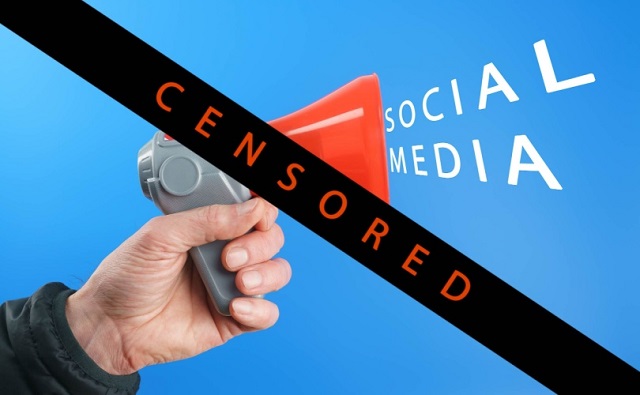
From LifeSiteNews
In light of the barrage of new internet censorship laws being passed or brought forth by the federal government of Prime Minister Justin Trudeau, a new survey revealed that the majority of Canadians feel their freedom of speech is under attack.
According to results from a Leger survey conducted April 26-28 that sampled responses from 1,610 Canadians, 57 percent think their freedom of speech is being threatened, with 36 percent not believing this to be true.
Not surprisingly, those with conservative voting intentions, about 76 percent, were the most likely to feel that their free speech is under attack, with 70 percent of the same group as well as those over 55, feeling that Canada is not as free as before.
The survey results also show that 62 percent of Canadians think it is “tougher to voice their opinion in their country, while 27% think it is easier.”
“Conservative voters (70%) and Canadians aged 55 or older (70%) are more likely to think that it is tougher now to express their opinion,” Leger noted in its survey.
Not surprisingly, Liberal voters were the most supportive of placing limits on free speech, with 64 percent agreeing with the following: “There should be limits on freedom of speech to ensure that things such as hate speech, speeches preaching a form of intolerance, or speeches against democracy be prevented from reaching the public.”
The survey also revealed that about one of four conservative voters believe that their views are not socially acceptable.
Sixty percent of conservative voters said that free speech should never be limited in any manner and that one should be able to express their opinions publicly without issue.
Regarding their reasons for free speech being under attack, 11 percent blamed politicians causing more hate, with eight percent saying “right-wing” extremists were to blame, with seven percent blaming woke-minded thinking as the issue. Twenty-nine percent of Canadians felt that a growing lack of respect is to blame, and 13 percent thought it is due to “a degradation of the moral fibre in the country.”
A bit concerningly, only six of 10 Canadians have confidence that the next federal election, scheduled for 2025, will be “free and fair,” with 29 percent saying outright they are “not confident.”
When it comes to internet censorship laws, the most recent one introduced in the House of Commons is a federal government bill that could lead to large fines or jail time for vaguely defined online “hate speech” infractions under Liberal Minster Attorney General Arif Virani’s Bill C-63, or Online Harms Act.
LifeSiteNews recently reported how well-known Canadian psychologist Jordan Peterson and Queen’s University law professor Bruce Pardy blasted Trudeau and his government over Bill C-63.
Peterson noted that in his view, Bill C-63 is “designed … to produce a more general regime for online policing.”
“To me, that’s what it looks like,” he said.
Two other Trudeau bills dealing with freedom on the internet have become law, the first being Bill C-11 or the Online Streaming Act that mandates Canada’s broadcast regulator, the Canadian Radio-television and Telecommunications Commission (CRTC), oversee regulating online content on platforms such as YouTube and Netflix to ensure that such platforms are promoting content in accordance with a variety of its guidelines.
Trudeau’s other internet censorship law, the Online News Act, was passed by the Senate in June 2023.
The law mandates that Big Tech companies pay to publish Canadian content on their platforms. As a result, Meta, the parent company of Facebook and Instagram, blocked all access to news content in Canada. Google has promised to do the same rather than pay the fees laid out in the new legislation.
Critics of recent laws such as tech mogul Elon Musk have said it shows “Trudeau is trying to crush free speech in Canada.”
-

 conflict2 days ago
conflict2 days ago‘It Makes No Sense’: Experts Puzzled By Biden Admin’s Claim That Rafah Invasion Wouldn’t Help Israel Defeat Hamas
-

 City of Red Deer1 day ago
City of Red Deer1 day agoCity Council paving the way for more house suites, backyard suites, tiny homes, and duplexes
-

 Opinion1 day ago
Opinion1 day agoCanada’s fertility, marriage rates plummet to record lows: report
-

 Uncategorized14 hours ago
Uncategorized14 hours agoRCMP recruitment failure has Alberta advocacy group calling for Provincial Police Service
-
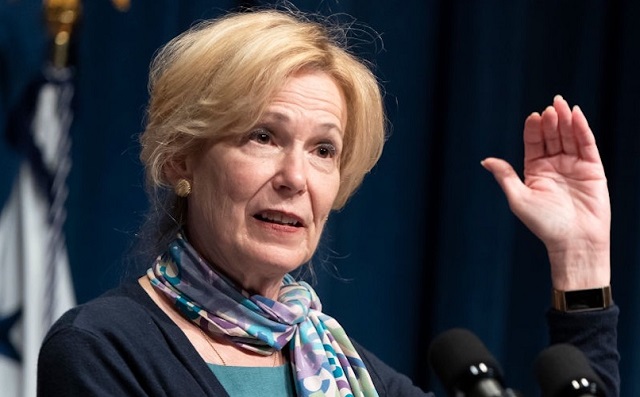
 COVID-191 day ago
COVID-191 day agoFormer COVID coordinator Deborah Birx now admits jabs could have injured ‘thousands’
-

 Bruce Dowbiggin2 days ago
Bruce Dowbiggin2 days agoWhy Do The Same Few Always Get The Best Sports Scoops?
-
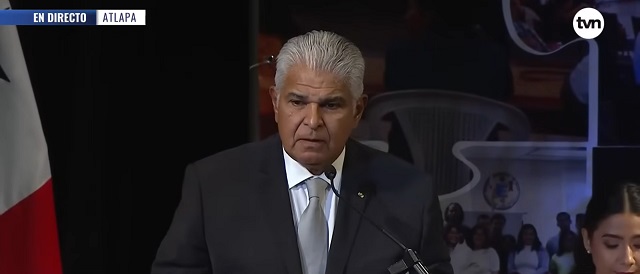
 illegal immigration1 day ago
illegal immigration1 day agoPanama’s Incoming President Wants To Shut Down His Country’s Most Treacherous Route For Migrants — But Will It Work?
-
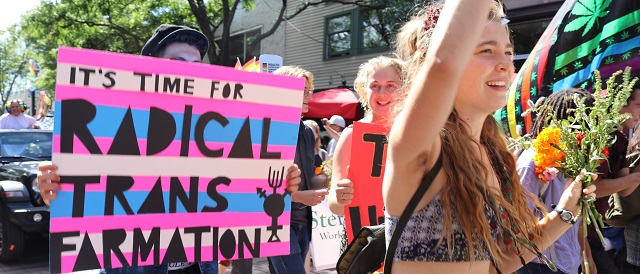
 Health12 hours ago
Health12 hours agoPrivate Footage Reveals Leading Medical Org’s Efforts To ‘Normalize’ Gender Ideology






